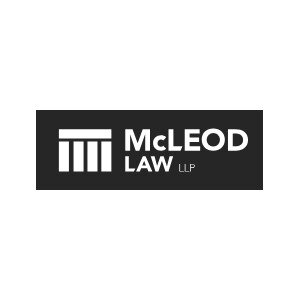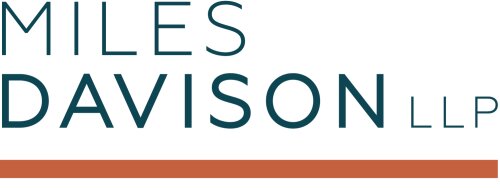Best Debt & Collection Lawyers in Canada
Share your needs with us, get contacted by law firms.
Free. Takes 2 min.
Or refine your search by selecting a city:
List of the best lawyers in Canada
About Debt & Collection Law in Canada
Debt and collection laws in Canada are designed to protect both creditors and debtors by ensuring fair practices in the process of debt recovery. These laws regulate how creditors can pursue the collection of debts and provide guidelines on what debtors can expect throughout the process. The primary goal of these laws is to ensure a balanced approach that prevents harassment and allows debtors to be fully informed of their rights. Debt collection activities are subject to both federal and provincial regulations, with each province having specific rules affecting how debts can be pursued within its jurisdiction.
Why You May Need a Lawyer
There are several situations where an individual or business might require legal assistance in matters related to debts and collections:
- Debt Disputes: If there is a disagreement over the amount owed or the validity of the debt.
- Harassment by Collectors: Experiencing aggressive or unfair treatment by debt collectors, which may violate legal standards.
- Consumer Bankruptcy: When considering bankruptcy as an option to manage overwhelming debt.
- Debt Settlement Negotiation: Seeking to restructure or negotiate more favorable repayment terms with creditors.
- Legal Representation in Court: Defending oneself against a lawsuit filed by a creditor.
- Understanding Debt Relief Options: Exploring the legal avenues for debt relief or consolidation.
Local Laws Overview
Debt collection practices are regulated both federally and provincially in Canada. Key aspects that must be adhered to include:
- Federal Regulations: The Canada Consumer Protection Act provides a foundational guideline that sets protections against unfair practices.
- Provincial Regulations: Each province has its own legislation, such as Ontario's Collection and Debt Settlement Services Act, which governs licensing and conduct of collection agencies and debt settlement services.
- Communication Rules: Restrictions on when and how often debtors can be contacted. Typically, collectors cannot contact debtors outside of specified hours or use threatening language.
- Privacy Concerns: Laws prohibiting the sharing of a debtor’s financial situation with unauthorized parties.
Frequently Asked Questions
What steps can a creditor legally take to collect a debt in Canada?
Creditors can send demand letters, hire a collection agency, or potentially pursue legal action. However, all actions must comply with federal and provincial regulations.
Are there limits to how often collectors can call me?
Yes, each province sets specific rules about the frequency and timing of debt collection calls to prevent harassment.
Can a debt collector contact my employer?
Generally, debt collectors can only contact employers to verify employment, not to disclose debt details or exert pressure for repayment.
What should I do if I receive a collection notice?
First, verify the debt’s legitimacy. If correct, negotiate a payment plan or seek legal advice. If incorrect, dispute the claim promptly.
Can my wages be garnished for unpaid debts?
Wage garnishment is possible if a court orders it post-judgment by a creditor. The percentage that can be garnished varies by province.
What legal protections do I have against debt collector harassment?
Laws prevent collectors from using abusive language, making threats, or contacting you excessively. Violations can be reported to regulatory bodies.
Is it possible to settle for less than the full amount owed?
Creditors may agree to a settlement for less than the full balance, particularly if it seems like the debtor might default otherwise. This often requires negotiation.
Are there alternatives to filing for bankruptcy?
Yes, alternatives include debt consolidation, debt settlement, and consumer proposals. Consulting with a financial advisor or lawyer can help determine the best option.
Do I need a lawyer to file for bankruptcy?
While not required, a lawyer or licensed insolvency trustee can provide valuable guidance through the complex process and ensure your rights are protected.
How long does a debt remain on my credit report?
Typically, a debt remains on your credit report for six to seven years after the last payment date, varying by province and credit bureau.
Additional Resources
For further assistance, consider these resources:
- Office of Consumer Affairs: Offers consumer protection information and advice.
- Provincial Consumer Protection Agencies: Provides guidance and enforcement of provincial debt collection laws.
- Licensed Insolvency Trustees: Professionals who can offer debt advice and manage bankruptcy filings.
- Canadian Bar Association: Can help locate a lawyer specializing in debt and creditors’ rights.
Next Steps
If you need legal assistance with debt and collection issues, consider these steps:
- Gather all relevant documents related to your debts, collections, and communication with creditors.
- Identify the specific nature of your legal needs-negotiation, litigation, bankruptcy, etc.
- Consult with a lawyer specializing in debt and collection law. Initial consultations often provide direction and potential next steps.
- Explore further educational resources or professional assistance through a licensed insolvency trustee or financial advisor.
Understanding your legal rights and obligations is crucial in managing debt effectively. Professional legal advice can be invaluable for navigating complex debt situations responsibly.
Lawzana helps you find the best lawyers and law firms in Canada through a curated and pre-screened list of qualified legal professionals. Our platform offers rankings and detailed profiles of attorneys and law firms, allowing you to compare based on practice areas, including Debt & Collection, experience, and client feedback.
Each profile includes a description of the firm's areas of practice, client reviews, team members and partners, year of establishment, spoken languages, office locations, contact information, social media presence, and any published articles or resources. Most firms on our platform speak English and are experienced in both local and international legal matters.
Get a quote from top-rated law firms in Canada — quickly, securely, and without unnecessary hassle.
Disclaimer:
The information provided on this page is for general informational purposes only and does not constitute legal advice. While we strive to ensure the accuracy and relevance of the content, legal information may change over time, and interpretations of the law can vary. You should always consult with a qualified legal professional for advice specific to your situation.
We disclaim all liability for actions taken or not taken based on the content of this page. If you believe any information is incorrect or outdated, please contact us, and we will review and update it where appropriate.
Browse debt & collection law firms by city in Canada
Refine your search by selecting a city.
















